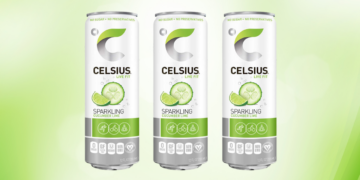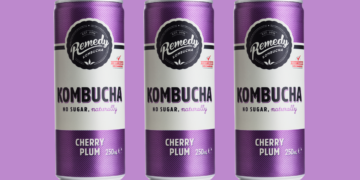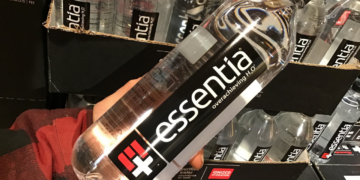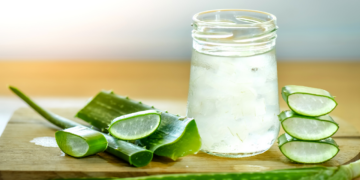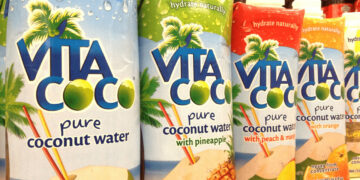
There’s always been a debate between black and white coffee. Some coffee lovers prefer their brew to be dark and strong. Latte lovers prefer it to be sweet and creamy. In this article, we’ll be focusing on dairy alternatives latte lovers can pour in their coffee.
According to National Coffee Drinking Trends (NCDT), 68 percent of coffee drinkers like their coffee white. If you are one of those who prefer cream in their coffee, you might have used the usual milk or creamer. But, what if you’re lactose intolerant? Or if you’ve decided to go vegan?
Defining the best really depends on what you’re looking for. Are you looking for something that tastes like cow’s milk? Something that won’t curdle? Something healthier than cow’s milk? Don’t know where to start? We got you covered! We’ve sifted through the most popular options to give you our take on the best dairy alternatives for coffee
From our research, we find soy to be the best bet when paired with coffee. It has a neutral taste so your cup of coffee shouldn’t have a funny taste, and it has a similar texture to milk. Additionally, as far as non-dairy milk goes soy seems to be the most consistent brand to brand.
Which Milk Alternative Tastes The Most Like Milk In Coffee?
There isn’t non-dairy milk that tastes just like milk. Personally, I would say soy milk tastes the closest because it has the most neutral taste. If it’s a case of being lactose intolerant – and not vegan or on a plant-based diet – then you might be better off using lactose-free cow milk for that familiar taste.
We made this conclusion because compared to creamy soya milk we find that:
- Rice milk and almond milk can be very watery.
- Almond milk and hazelnut milk have a distinct nutty taste.
- Coconut milk unsurprisingly tastes like coconuts.
- Oat milk tends to have a weird sickly sweet aftertaste.
For us when it comes to taste the best for coffee is soy milk because it has a neutral flavor, a similar consistency as dairy milk, and doesn’t often have a strange aftertaste that clash with coffee.
What’s The Healthiest Non-Dairy Milk In Coffee?
How healthy non-dairy milk is, tends to vary by brand and variety. Non-dairy milk often has sweetened versions, unsweetened versions, regular, full fat, etc which impacts how many calories and sugars they have. If you’re looking for something healthy for your coffee, the first thing to do is to avoid the sweetened versions of whatever choice you choose. For example, it’s better to go for regular or unsweetened soy milk than a sweetened version.
Another aspect of health is looking at the macro and micronutrients of the ‘milk’. Lots of brands fortify their milk ( alternative or not) with minerals. This is especially true for dairy-free alternatives as they try to make up nutrition you would have gotten from cow’s milk. It is not uncommon to see a dairy alternative milk fortified with calcium, vitamin B 12, and vitamin D. The only exception that I know is the brand Rude Health. They do not fortify their non-dairy milk are they prefer to keep things the way nature made them.
Ultimately, the number of calories, fat content, or sugars in a drink is not indicative of health. Sometimes going with a ‘milk’ with the least amount of calories, fats or sugars can mean sacrificing some potential health benefits. It all depends on the objective and what fits in the diet plan for the individual.
Plant-Based Milk And Thier Ideal Coffee Pair
Soy Milk
Soy milk is the most versatile when it comes to coffee. It tastes the closest to dairy milk, which means it suits pretty much every coffee drink just like regular milk would. Whether you’re having a cappuccino, latte, flat white or just making a cup of Joe at home, soy milk is always a solid choice.
Oat Milk
Oat milk is also very versatile in coffee which is why it is often used. It can be easily made frothy which is why it is used in cappuccinos. Its mild taste really allows the coffee flavors to shine in lattes and flat whites. At home, it is also great as it helps to remove the bitterness from a cup of black coffee – or in an Americano from a cafe.
A flavored latte or an oat mocha taste pretty good too but are not much better than soy or almond versions of these drinks because the milk gets lost in the other flavors.
Hazelnut Milk
Hazelnut milk is best for flavored lattes or for a twist on a flat white. Depending on the brand, it doesn’t always get foamy enough for a cappuccino. It also tends to curdle when poured into black coffee. The nutty flavor also doesn’t pair very well with black coffee anyway.
Rice Milk
For some people, rice milk may be one of the only options when it comes to finding an alternative to milk in coffee. Many non-dairy milks are nut-based, which can be a non-contender for folks who are allergic. Soy and dairy are common allergens too so that cancels that out too, leaving few options such as rice milk.
But, rice milk is quite watery and I wouldn’t suggest it in an Americano unless you additionally add a creamer. It does however make a decent latte, flat white, or cappuccino.
Coconut Milk
Coconut milk is great for a natural coconut-flavored latte! It also works in flat whites and cappuccinos. Beyond that, I wouldn’t recommend it in many other coffee drinks. The coconutty taste is unusual in black coffee. Additionally, I find the flavors clash too much in a latte flavored with syrup or in a mocha.
Almond Milk
Almond milk can sometimes be too watery for black coffee. It does taste great in a latte, flat white, or cappuccino. The natural almond flavor is so mild that it doesn’t taste bad in a mocha or a flavored latte.
Hemp Milk
Hemp is not the most common plant-based milk but you don’t need to write it off. The taste has been described as similar to sunflower seed and a pine nut. It’s quite watery which might be off-putting to some coffee drinkers but it is fine in a latte, flat white, or cappuccino.
Pea Milk
Pea milk is actually good at making latte art on coffee beverages. If you come across it in a coffee shop, you might enjoy the thick silky foam it creates. One of the reasons it’s not common in coffee is because it’s not as easily available.
Cashew Milk
Cashew milk is more popular in cereal or smoothies. That said, it’s not as nutty tasting as other nut milk and is creamy too! It’s good for foamy cappuccinos, lattes, and flat whites. As the taste is so neutral, it won’t interfere with the taste profiles in mochas or flavored lattes.
Best Barista Plant Milk
Oatly Professional is the best barista plant milk for coffee. It doesn’t curdle and is easy to forth for lattes and other drinks. It doesn’t have the sickly sweet aftertaste that many oat milks have.
Califa Oat Barista Blend is a very close second. Like Oatly, there is not a weird aftertaste but I ever-so-slightly prefer the taste of Oatly. It also froths just as well and doesn’t curdle.
Alpro Barista Soya compliments all coffee beverages and comes in third place – only because I think Oatly and Califa taste better.
Alpro Barista Coconut is easy to froth for lattes and tastes deliciously coconutty. I would rank this in fourth place because you’re more limited with the drinks you can use it in.
Rude Health Organic Almond Barista is naturally the perfect texture for coffee. As far as almond milk goes, it is not too watery. It’s not too sweet but isn’t bland either! It ranks in fifth place because almond milk isn’t as versatile as oat milk and soy milk.
Best Plant-Based Heavy Cream For Coffee
Here are some of the best plant-based heavy cream for coffee:
- Starbucks: as someone who loves Starbucks seasonal drinks, it’s great that you can still enjoy them on a plant-based diet. They have fan favorites like barista blend pumpkin spice and hazelnut latte. If you love flavored lattes, Starbucks is your best bet.
- So Delicious coconut creamers are yummy in coconut lattes. They have an oat milk creamer which is arguably the best for a regular cup of coffee at home.
- Ripple Foods Half & Half tastes more natural in coffee than you might expect, given that it’s made from pea milk protein! It’s pretty good in a standard cup of coffee.
- Elmhurst has lots of flavors too like pumpkin spice and french vanilla oat creamer. If you love flavored lattes, but not so much Starbucks, these creamers are the best option for you.
- Project Forager’s Half & Half is delicious but as it’s made from coconut cream and cashew milk, it’s not a taste that everyone will love. That said, it’s certainly not overpowering!
FAQ
Should Men Avoid Soy Milk In Coffee?
A lot of people are hesitant to use soy milk in their coffee because there’s a lot of misconceptions about the phytoestrogens in it.
Lots of plant-based foods like sunflower seeds, peaches, and flax seeds contain phytoestrogens too, so it would be tricky to avoid them entirely on a plant-based diet. Plus, it doesn’t give men breasts!
Soy has been found to have health benefits such as reducing the risk of coronary heath disease and cardiovascular disease. Organic soy milk is very common for coffee. However, keep in mind that while there is truth to the claim that most soy is genetically modified, more soy is actually fed to livestock than consumed humans.
If you are taking medication for hypothyroidism, you should keep an eye on your soy intake as it can interfere with the medication. Take your medication and soy coffees separately.
What Non-Dairy Is Most Commonly Paired With Coffee?
Soy seems to be most commonly paired with coffee when it comes to milk alternatives. One of the reasons for this is because it’s one of the most accessible and well-known plant-based milk. As it tastes the closest to dairy milk, it suits most coffee drinks just like regular milk does.
Oat milk appears to be growing in popularity, especially when it comes to pairing it with coffee. Many vegans use different kinds of milk for different things; like almond milk in smoothies, oat milk in their coffee, etc. As oat milk has a thick texture and compliments the coffee so well, it might just overtake soy milk in the future!
However, if you want one carton of plant-based milk for coffee, breakfast, and everything else, then I would choose soy.
Which Non-Dairy Milk Curdle?
Regular soy and oat milk naturally curdle the least, and even less so if you buy the barista version. That said,non-dairy milks tend to curdle and separate in coffee. Heating up the milk in the microwave for a few seconds (in a saucer, not the carton) can sometimes help to combat this.
Sum Up
While oat milk and soy milk are the most common milk alternatives for coffee, that doesn’t mean you should discard other milk. That said, taste is subjective, and any non-dairy milk can technically replace milk in coffee especially when paired correctly.
For example, most lattes, flat white, or a cappuccino with coconut milk would have a sweet refreshing taste. Hazelnut milk adds a mild nutty taste to lattes – without the need to add coffee syrups which can be particularly advantageous as flavored syrups even sugar-free sweeteners versions can be unhealthy especially if you’re drinking them often.


